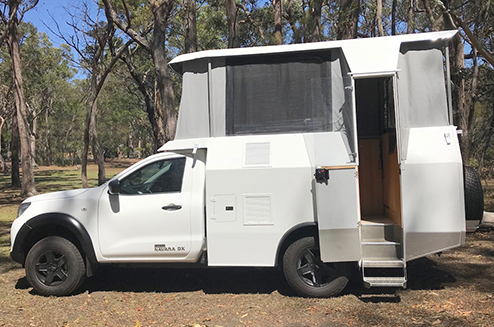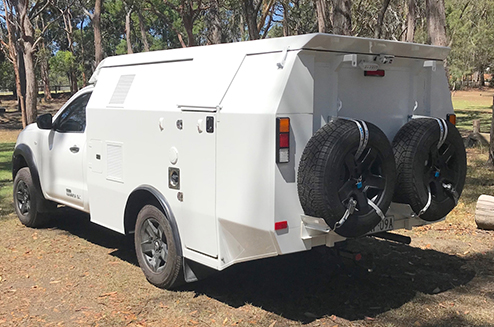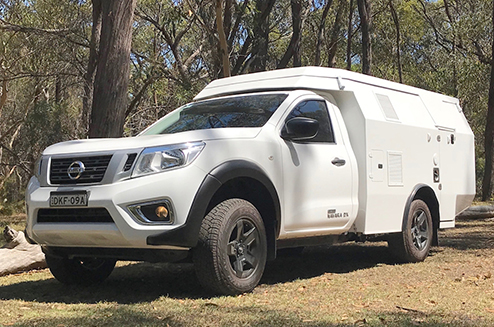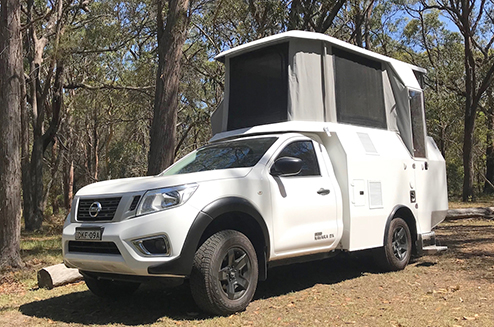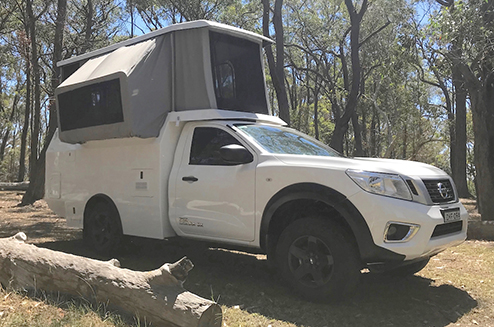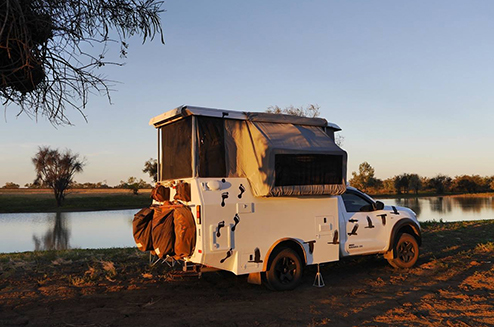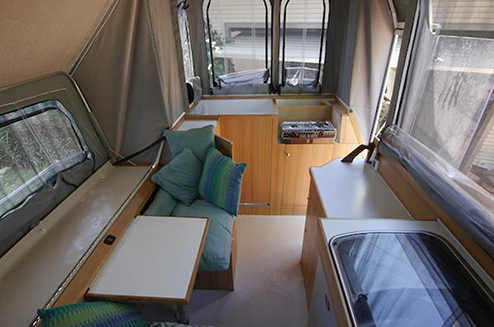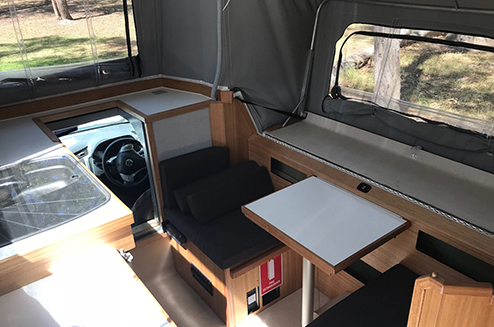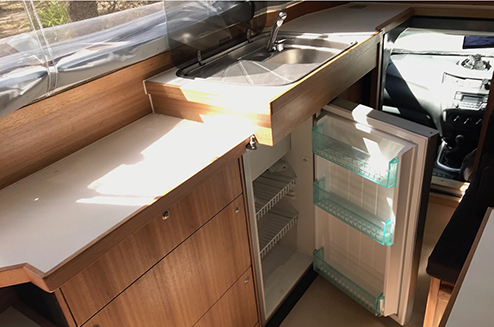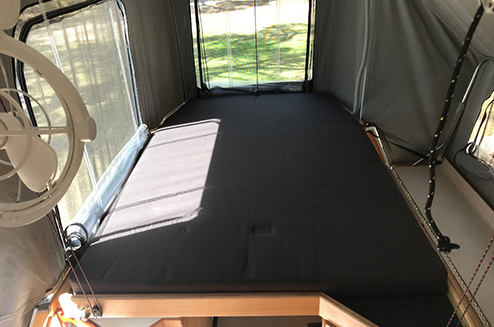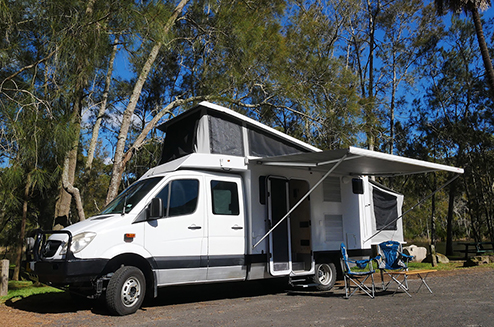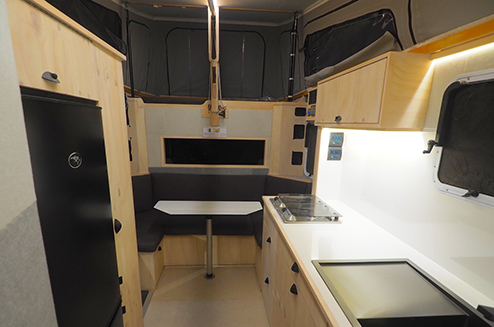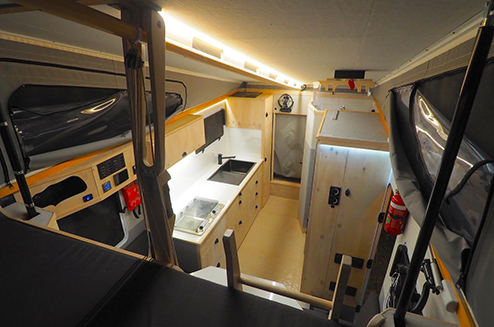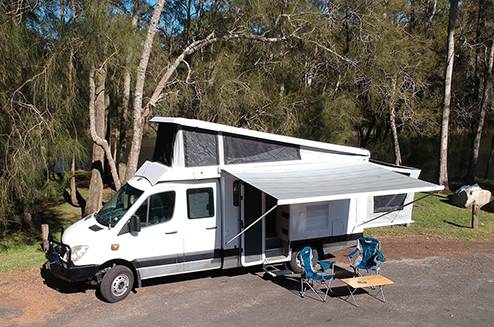Homes On Wheels
Envirotecture also has a boutique arm of the business designing small things that provide habitation and move, with lowest practical ecological impact. Mostly these would otherwise known as motorhomes, though there’s the odd solar powered boat in the mix as well.
With a shopfront called Insideoutback Campers, we have a lot of fun developing the most practical compact and low impact camping vehicles we can. While not a manufacturer, we do sell plans and specifications, but as often as not just provide gratis advice to people wanting to travel lighter.
Project Details
Director Dick Clarke has a long history of travelling in Australia and overseas in campervans, starting with a disastrous experience with one of this country’s big name vans in 1977, which led him to commit to “doing it better”. With a long history developing foam cored composites, low profile pop-top systems, and solar power from the 1980s, we then provided an alternative to big 4WDs and caravans with the utra-compact Koleos Camper.
More recently we have developed lightweight fully blown motorhomes (a motorhome having shower and toilet and being fully self-contained), in the form of the 2 berth 4WD code named Dixi which is a full foam sandwich monocoque construction like an ocean racing yacht, and is fully solar powered for all except motive power, including hot water.
Our most recent concept is the family sized 6 seat – 6 berth motorhome code named Bruce, which is not only fully composite construction, but all structural materials and interior joinery was grown in a paddock or a forest: balsa-core panels with flax reinforced skins and bio-epoxy resin, with joinery all hoop pine and radiata pine. It is also fully solar powered except for motive power, though we await a full EV conversion retrofit in years to come!
Why do we do this? Because the world has too many lumbering gas-guzzling RVs cluttering the outback and pumping CO2 into the already groaning eco-system.

